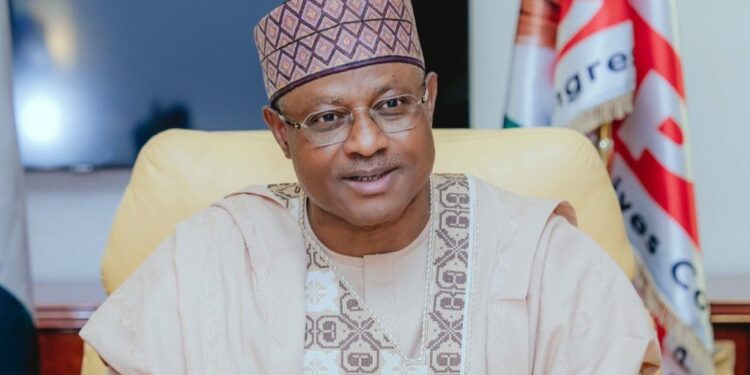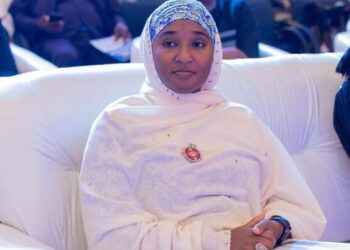Kaduna State Governor Uba Sani announced a significant decrease in the number of out-of-school children within his state, marking a 300,000 reduction since April 2024.
Speaking to journalists at the State House following discussions with President Bola Tinubu, Sani highlighted his administration’s success in addressing longstanding educational and healthcare infrastructure challenges.
According to the Kaduna State Bureau of Statistics, the state currently has approximately 768,739 children not enrolled in formal education, specifically covering grades Basic 1 through 9.
Governor Sani attributed the 300,000-student reduction to a strategic emphasis on bolstering educational facilities, increasing classroom capacity, and hiring new educators.
“In the last six months, we have made a substantial impact, reducing the number of out-of-school children by 300,000. We achieved this by constructing 62 secondary schools and 2,340 new primary school classrooms across Kaduna,” he shared. “In addition, we have increased the teaching workforce to ensure adequate educational support for these students.”
The administration’s commitment to education reform extends beyond simply expanding facilities. Governor Sani’s strategy includes optimizing government spending, directing resources more effectively to critical areas, and prioritizing essential public services. “We implemented substantial reductions in governance costs in Kaduna State,” he explained. “This includes abstaining from non-essential government purchases, such as vehicles for officials, and reducing salaries. I have taken only half of my salary since assuming office, and we’ve cut allowances for all commissioners and advisers.”
What you should know
Governor Sani’s commitment to cost-saving has been thorough, aligning resources to advance educational and healthcare outcomes within the state. Alongside the educational infrastructure upgrades, he outlined significant progress in healthcare, sharing that the administration has “reconstructed, remodeled, and equipped 12 secondary healthcare centers” as part of an ongoing drive to improve public health services in Kaduna.
- While acknowledging the need for continued efforts, Governor Sani reiterated his government’s commitment to prudent resource allocation, underscoring the importance of operational efficiency to enable strategic investments in education and healthcare. “We recognize that the journey is long,” he said, “but our cost-control measures are designed to ensure we can sustain and expand these vital investments for the benefit of Kaduna’s people.”
- Governor Sani’s approach reflects a growing trend among Nigerian states prioritizing sustainable governance and responsible fiscal management, particularly in sectors crucial to socioeconomic development. His meeting with President Tinubu underscored a shared commitment to aligning local and national priorities, ensuring that Kaduna State’s initiatives in education and healthcare contribute to broader national goals.
Kaduna’s approach may well serve as a model for other regions aiming to enhance their social services despite fiscal constraints. Governor Sani’s ongoing fiscal discipline and targeted investments in public welfare, he hopes, will continue to yield positive results, driving progress in Kaduna and supporting Nigeria’s development ambitions.


























